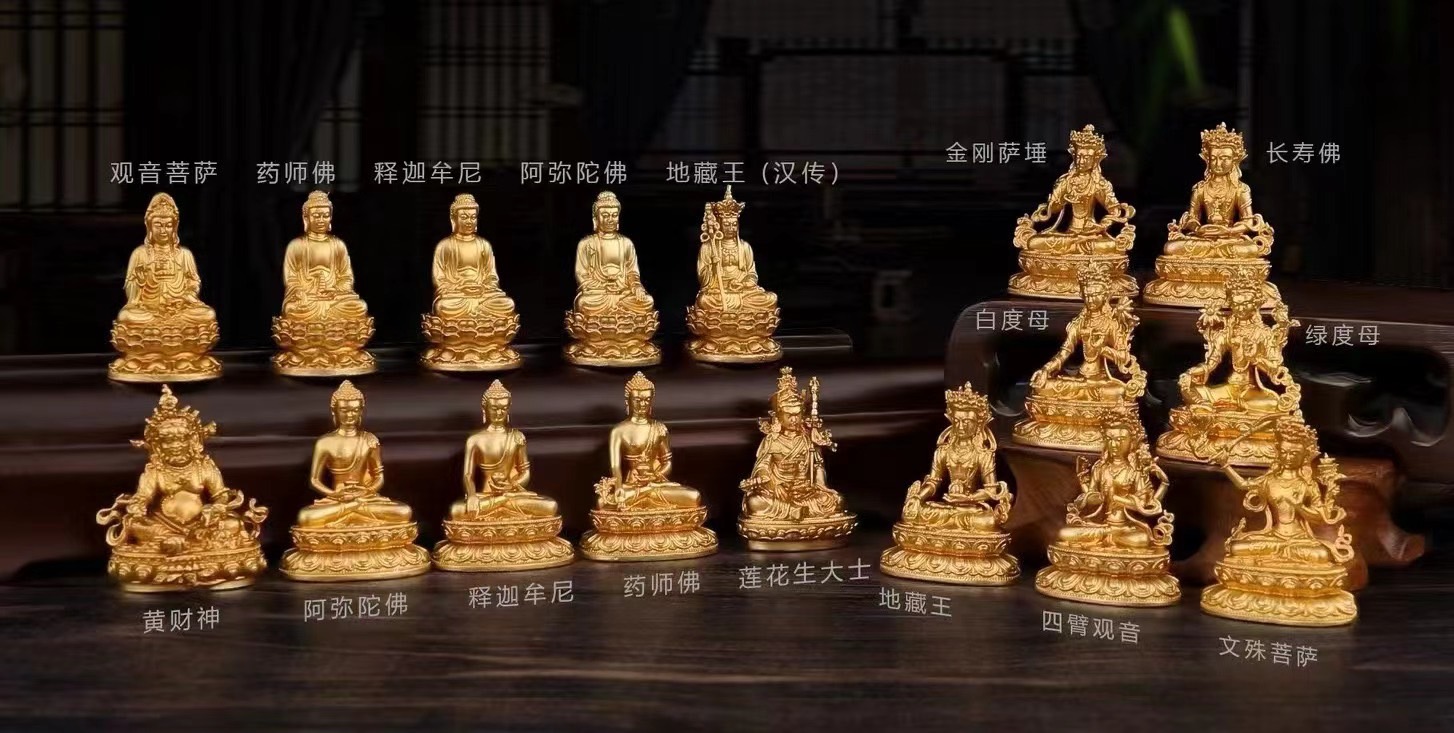Material: Tibetan brass Buddha statue
Size: 7 cm (approximate size)
Narrative:
Tibetan Buddhism is home to a vast array of deities, each with unique symbolic meanings and protective functions. These deities hold important roles not only in religious rituals and practice but also deeply influence the daily lives and spiritual worlds of the faithful.
Tibetan Buddhist deities can be broadly categorized into three main groups: Buddhas, Bodhisattvas, and Dharma Protectors. Buddhas, such as Shakyamuni Buddha, are the founders of Buddhism whose teachings form the core of Tibetan Buddhism. Bodhisattvas, such as Avalokiteshvara (Chenrezig) and Manjushri, symbolize compassion and wisdom. They use their boundless love and profound wisdom to save sentient beings. Dharma Protectors, such as Palden Lhamo and Mahakala, are responsible for safeguarding the Dharma and protecting followers from evil forces.
These deities have a profound impact and significance for the general populace. Firstly, their images and stories convey important moral and spiritual teachings. For instance, Avalokiteshvara symbolizes infinite compassion, reminding people to treat others with love and tolerance; Manjushri represents wisdom, encouraging the pursuit of truth and knowledge. Additionally, Dharma Protectors like Mahakala teach followers to face difficulties and challenges bravely, adhering to their beliefs.
Tibetan Buddhist deities also play important roles in daily life. Devotees connect with these deities through prayers, meditation, and rituals, seeking their protection and guidance. These religious activities not only provide spiritual comfort and strength but also help establish a positive attitude and values in life. For example, in times of adversity, devotees may pray to Avalokiteshvara for compassion and help, gaining inner peace and courage.
In summary, Tibetan Buddhist deities have a profound impact and significance in the hearts of followers. They convey important moral and spiritual teachings through their images and stories, providing protection and guidance in daily life. The presence of these deities enriches the cultural connotations of Tibetan Buddhism and serves as a source of spiritual reliance and the pursuit of inner peace and wisdom for devotees.
